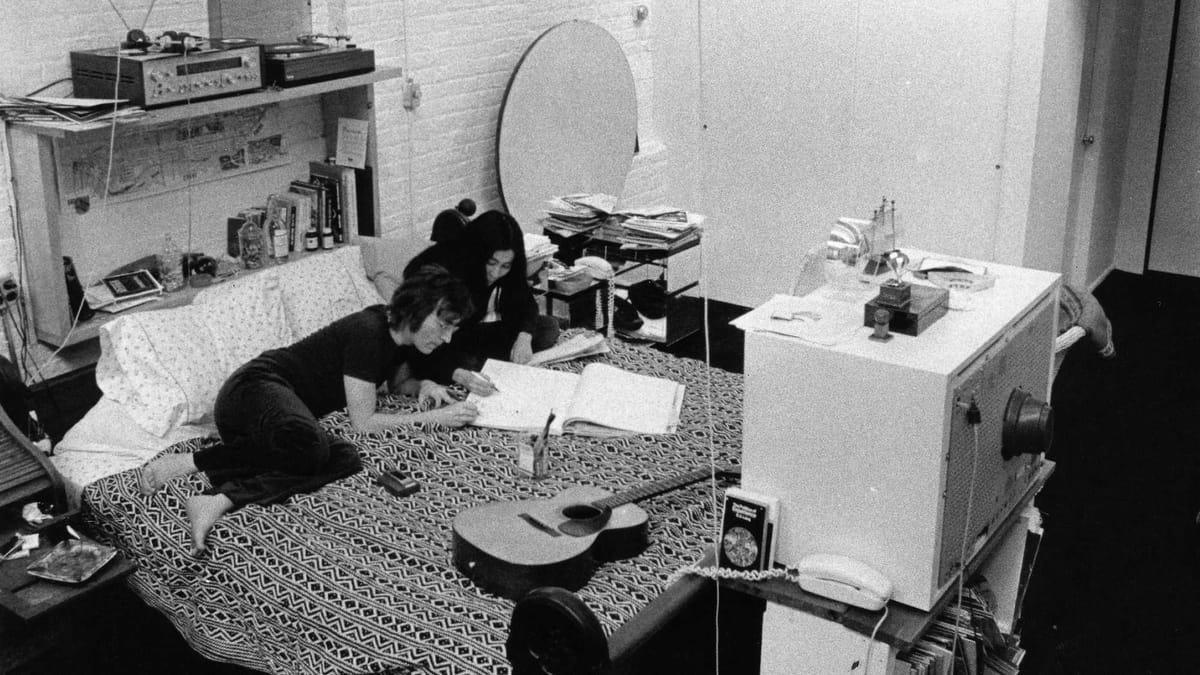NZIFF 2025 Craccum Coverage | One to One: John & Yoko
Imagine an actually good John & Yoko documentary, it’s easy if you try

Review by Louise Matheson & Lewis Matheson Creed
This documentary stands out from the sea of John Lennon & Yoko Ono documentaries. Why? It focuses on capturing the creative/activist mindset of the period when the controversial power couple arrived in Greenwich Village, New York City, in 1971. From their two-bedroom apartment, they got stuck right into radicalising apathetic youth with music.
Specifically, the film stands out by refusing the talking heads style and instead relying solely on archival footage and recordings, so they tell their own story using their own words.
The documentary uses Lennon’s love for television as the narrative device, punctuating interviews, home videos, concert footage and sound bites with ads and channel surfing, which serves to contextualise the zeitgeist of America under Nixon. And Lennon’s anti-war anthems really were the zeitgeist of the time for youth. Even here in Aotearoa, following the Haka Party Incident at UOA, students gathered in the quad to sing Imagine. Can you imagine something like that happening today to protest against our government?
By showing and not telling, directors Kevin MacDonald and Sam Rice-Edward provide an audiovisual equivalent to Genius for lyrics that are no longer obvious to us as they were for the audience of the Lennon’s One-to-One concert, such as Attica State and John Sinclair.
John and Yoko used their platform to push for change and raise money and awareness for worthy causes. Despite technology making it easier than ever to communicate, such forthright opinions rarely escape the lips of modern-day celebrities.
And that’s why I think I walked away from One-to-One, and while detractors might be sceptical of their glowing portrayal, wary of idol worship and the posthumous deification of Lennon and other rock stars, it’s without a doubt that Ono and her late husband are humanised here for their bravery in the face of racial and political persecution. realising how little we’ve come in the last 50 years. People are still racially and misogynistically using Yoko Ono and her art as a punchline. And while detractors might be skeptical of their glowing portrayal, wary of idol worship and the posthumous deification of Lennon and other rock stars; it’s without a doubt that Ono and her late husband are humanised here for their bravery in the face of racial and political persecution.
If you’re not convinced by my word, take my mum’s, who is an avid fan of Lennon, and even she was impressed by One to One. Is it a must-see if you’re not a fan? Yes, because beyond the music, the film serves as a time capsule of early 70s optimism for the future, which poignantly contrasts our rather pessimistic present circumstances.





